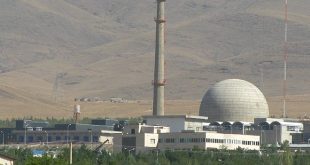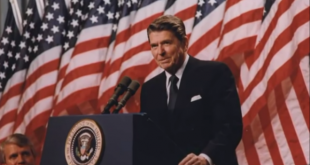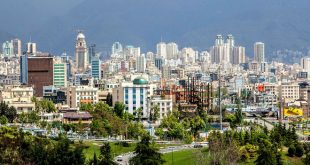 I remember seeing pictures of Fidel Castro for nearly 50 years. His image has changed from a black haired, Liam Neeson like figure dressed in combat fatigues to a wizened old man. Today’s 88 year-old Castro does not look as dangerous or iron -willed as he did in the past, but very little about the essence of the man has changed. Decades ago, Fidel Castro led the Cuban Revolution, deposing then president, Fulgencio Bastista in 1959 and replacing his government with a communist one. A year later, the United States imposed an embargo, banning commercial trade with Cuba, except for humanitarian items like medicine. Two years later, the Soviets began placing ballistic missiles in Cuba aimed at the United States; the ensuing crisis brought the two superpowers the closest they ever came to a nuclear showdown during the Cold War.
I remember seeing pictures of Fidel Castro for nearly 50 years. His image has changed from a black haired, Liam Neeson like figure dressed in combat fatigues to a wizened old man. Today’s 88 year-old Castro does not look as dangerous or iron -willed as he did in the past, but very little about the essence of the man has changed. Decades ago, Fidel Castro led the Cuban Revolution, deposing then president, Fulgencio Bastista in 1959 and replacing his government with a communist one. A year later, the United States imposed an embargo, banning commercial trade with Cuba, except for humanitarian items like medicine. Two years later, the Soviets began placing ballistic missiles in Cuba aimed at the United States; the ensuing crisis brought the two superpowers the closest they ever came to a nuclear showdown during the Cold War.
For decades, the Cuban American population—a powerful voting bloc in places like Florida—has stood uniformly against the Castro regime for understandable reasons. Many of them have seen or experienced Castro’s atrocities firsthand: the firing squads, political imprisonments, forced labor camps, religious persecution, and so on. Most watched Castro seize their land and possessions, while some saw their family members murdered. Thus even after the Cold War ended, the embargo against Cuba remained firmly in place.
With just 110 miles separating Cuba from the coast of Florida, hundreds of thousands have attempted to flee the Communist regime, many risking the trip in small boats or rafts. Perhaps the most high profile in recent memory was Elian Gonzalez, the six year old boy who was found floating in an inner-tube after all but two of his companions drowned attempting to escape the island nation in 1999. Months later, Gonzalez was returned to his father in Cuba, despite massive protest marches from Cuban Americans who wanted him to be allowed to stay with his relatives in Miami. Many speculated that the controversy contributed to the outcome of the 2000 presidential election.
The embargo remains in place today more than fifty years after its inception, but more recent polls show a shift in opinion, even among Cuban Americans. On 23 occasions—most recently last month— United Nations has condemned the policy, calling for the United States to normalize its relations with Cuba. President Obama himself has often spoken of a “new beginning for Cuba,” indicating that he is open to at least softening travel restrictions and economic sanctions.
The editors of the New York Times agree that it is time, writing recently that Obama should allow Cuba to attend next year’s Summit of the Organization of American States:
Normalizing relations with Havana would improve Washington’s relationships with governments in Latin America, and resolve an irritant that has stymied initiatives in the hemisphere. The Obama administration is leery of Cuba’s presence at the meeting [of the OAS] and Mr. Obama has not committed to attending. He must — and he should see it as an opportunity to make history.
Critics of the embargo point out that it has not achieved its goals: the Castro family remains in power and enforcing the policy diverts scarce national security resources to a pointless endeavor. Furthermore, as various international companies vie for Cuba’s telecommunications market, American companies will be left out if the embargo is not lifted.
But supporters of the embargo point to its moral as well as practical importance. Not surprisingly, the Miami Herald editorialized in opposition to lifting the ban:
The Cuban nomenklatura still runs the Soviet-style planned economy that largely remains in place, and its members remain its major beneficiaries…Cuba is still an unforgiving, authoritarian police state that will stop at nothing to stifle those it deems enemies of the state…Arrests of dissidents are going up, not down. Press freedom? Forget about it.
While few Americans fear enemy action from Cuba as we did during the 1960s, Cuba may not be as harmless as some suppose. In March of this year, the UN confirmed that Cuba was caught supplying North Korea with various weapons, including two MiG-21 aircraft. But if anything should give us pause before welcoming Cuba into our circle of international friends, it is the treatment of American Alan Gross. Gross, who came to Cuba as a subcontractor for the US government, has been unjustly imprisoned since 2009. Working to bring internet access to small communities in Cuba, he was sentenced to a 15 years in prison for espionage.
Since he has been imprisoned, Gross has lost over 100 pounds and his physical, mental and emotional health is rapidly deteriorating. In addition to general mistreatment, Cuban authorities denied Gross’s request to attend his mother’s funeral. This summer, CNN reported that Gross refused to see visitors and has said goodbye to his family members. Although the State Department insists that it is pushing continually for Gross’s release, many of his friends and relatives are hoping for stronger pressure from the same government that went to great lengths to secure the release of Sergeant Bowe Bergdahl.
Cuba may or may not present a real threat to America, but it is clear to anyone paying attention that its government has not changed in any meaningful way.
Photo credit: “Fidel Castro – MATS Terminal Washington 1959“. Licensed under Public domain via Wikimedia Commons.
 Bishop Harry Jackson is chairman of the High Impact Leadership Coalition and senior pastor of Hope Christian Church in Beltsville, MD.
Bishop Harry Jackson is chairman of the High Impact Leadership Coalition and senior pastor of Hope Christian Church in Beltsville, MD.
 Black Community News News and Commentary for Christians
Black Community News News and Commentary for Christians




Its the ideology, not the facial features that harbor the diabolical dangers. Ideologues are always trolling for converts. America is just awakening from its long, PC induced coma. Whether a wizened old has been or a vibrant sociopath, remember, its the ideology that sought to fundamentally transform(destruction from within) America. America will survive, her enemies will not. Keep the faith and the conversation going.